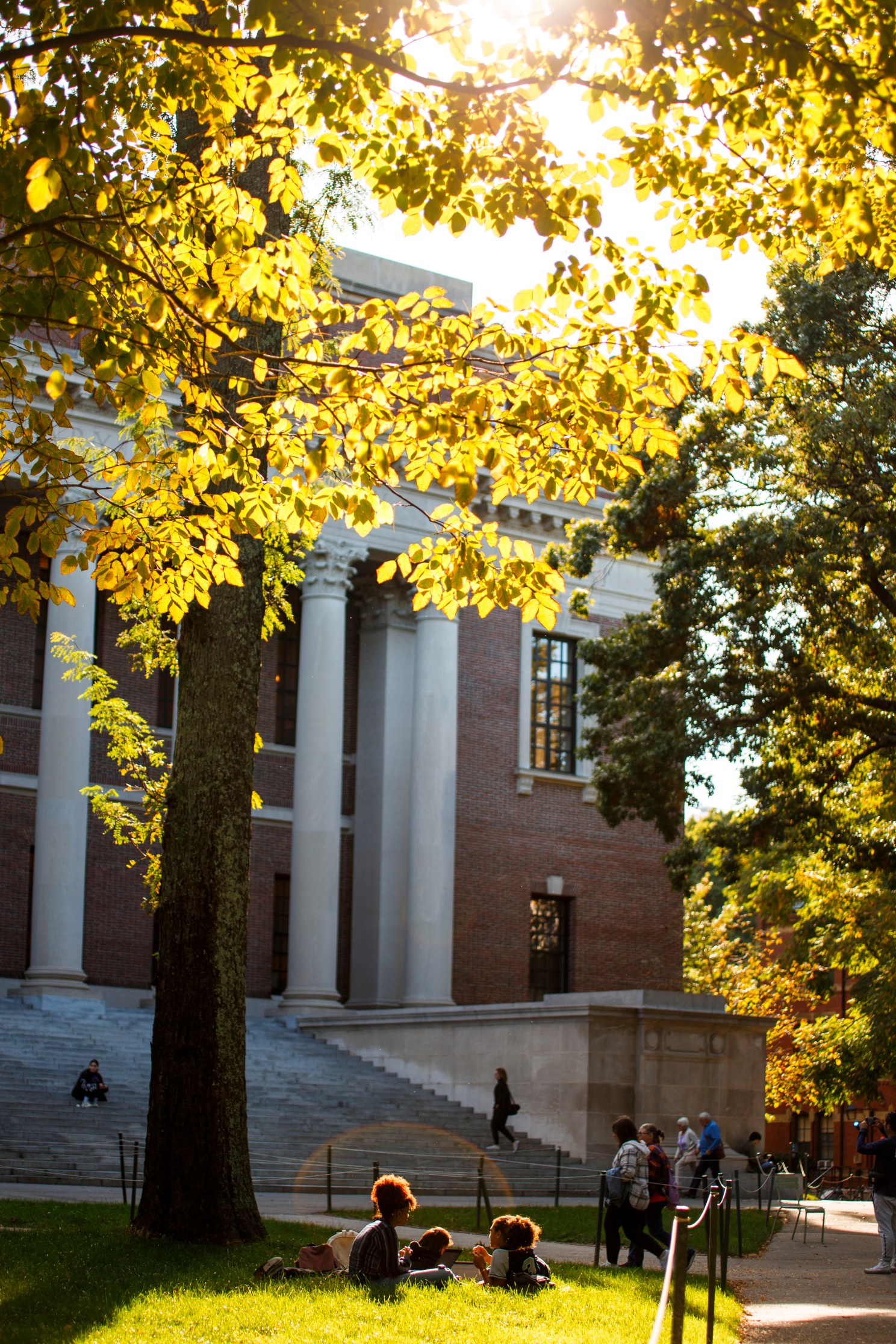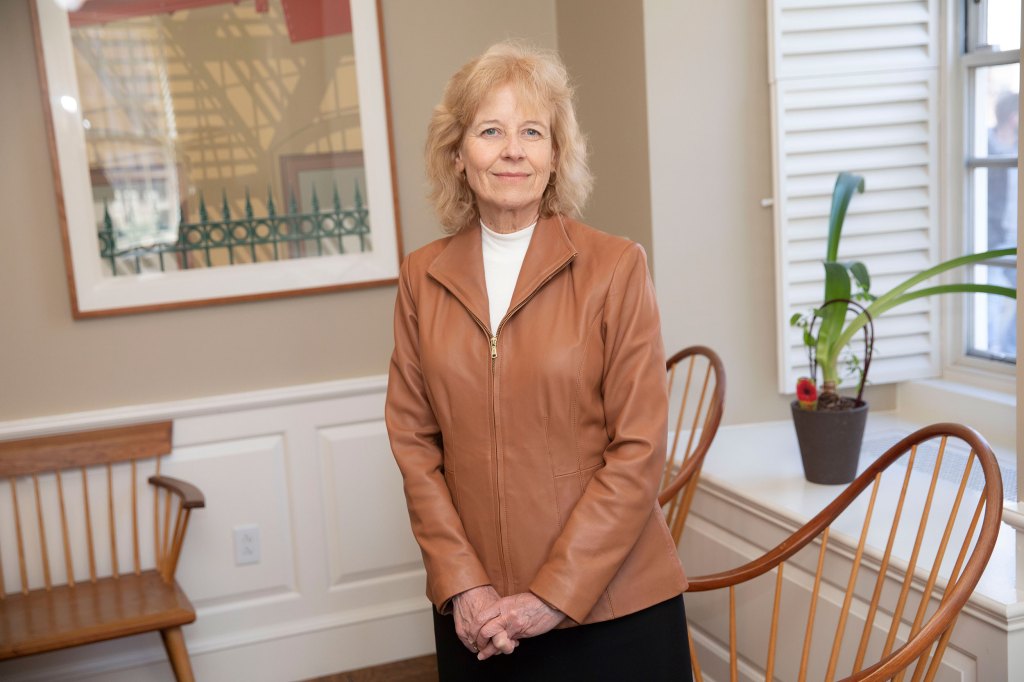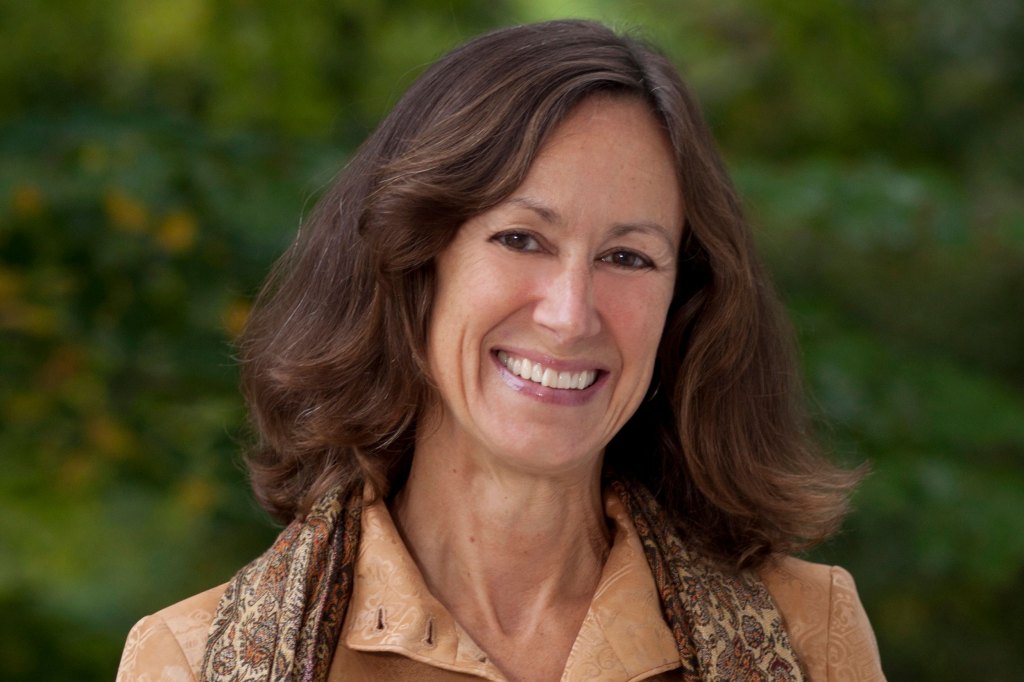
Widener Library.
Photo by Grace DuVal
Significant decline in sexual misconduct at Harvard, survey finds
Most students are aware of reporting mechanisms and support services, but many do not use resources
In April, the University invited all degree-seeking students to participate in the Higher Education Sexual Misconduct and Awareness (HESMA) survey. In a message to Harvard affiliates on Monday, President Alan Garber announced the release of the results.
The HESMA survey, which was conducted by a consortium of 10 universities, was the third in a series Harvard has used to understand and address issues related to sexual assault, misconduct, and harassment on campus. The first two were held in 2015 and 2019.
The new data shows a statistically significant decline in sexual misconduct at the University since the 2019 survey and indicates that a majority of bystanders who witnessed misconduct intervened. The results also show a high level of awareness of the reporting mechanisms and support services offered to those who have experienced sexual assault or harassment. Still, a significant number of students reported that they did not utilize resources following incidents.
These and other survey results will inform sexual assault and misconduct prevention practices and resource allocation.
The Gazette sat down with Peggy Newell, vice president and deputy to the president, and Kathleen McGinn, principal investigator for Harvard’s HESMA survey and Baker Foundation Professor at Harvard Business School, to discuss the findings.
Why is it important for the University to continue to gather data in this area?
Newell: We know from the research that we cannot rely on individual disclosures of reports of sexual harassment and assault to determine the prevalence of harm that is occurring within our community. Climate surveys, such as the Association of American Universities (AAU) surveys conducted in 2015 and 2019 and the HESMA survey conducted this year, offer important and reliable information that we can then use to develop strategies and resources for responding to this public health issue.
“The survey is long, and the questions touch on very sensitive subject matter, yet our students clearly were seeking to have their voices heard.”
Peggy Newell

Peggy Newell.
Harvard file photo
What are the most important findings from this year’s HESMA survey?
Newell: As a starting point, we are grateful to our students for taking the time to participate in this critically important research. The survey is long, and the questions touch on very sensitive subject matter, yet our students clearly were seeking to have their voices heard, with over 35 percent of Harvard students participating in the 2024 survey. The overall data show that the prevalence of all forms of non-consensual sexual contact, harassing behavior, and sexual harassment are lower in in 2024 than in prior rounds of the survey.
McGinn: The prevalence of sexual misconduct experienced by Harvard students was lower in spring 2024 than in spring 2019, but our students continue to experience sexual harassment and sexual assault. Even one incident of sexual assault on our campus is too many. In the large majority of incidents, students reported other students as the people responsible for the sexual misconduct. While our students are knowledgeable about support resources available on campus, these data show that very few students who experience sexual harassment or assault seek support from Harvard resources or programs. On a more positive note, students who observe behavior they believe could lead to sexual harassment or assault are very likely to intervene.
Newell: Having this information creates an opportunity for us to better understand the prevalence of sexual violence at Harvard currently and to use the data to inform our efforts to prevent harm. It is invaluable to be able to compare changes over the past four years to understand where and how our efforts have or have not made an impact. Additionally, it can help us work on lowering the barriers to seeking support when someone has experienced sexual violence. This is an area that the University is committed to exploring further so that we may better understand what resources and support are needed.
Since the original AAU survey in 2015, there have been many changes to resources at the University, including the formation of the Office for Gender Equity. For example, the SHARE [Sexual Harassment/Assault Resources and Education] Team is made up of trained counselors to offer trauma-informed counseling, groups, and advocacy for students, staff, faculty, and post-doctoral fellows, and has hired a restorative practitioner. We have also maintained a network of local Title IX Resource Coordinators across the Schools and central administration to provide individual supports to community members impacted by sexual harassment or other sexual misconduct to enable them to access their work or studies.
What trends do you see around the circumstances of assault and harassment cases?
McGinn: As in years past, the majority of undergraduate students who experienced sexual assault while at Harvard report that incidents of sexual assault begin either in on-campus housing or at on-campus social events and involve alcohol; the majority of assaults take place in on-campus housing. For graduate students, incidents of sexual assault are more likely to begin in off-campus social settings. We hope raising awareness of the circumstances around sexual assault will increase bystander awareness and reduce the likelihood of sexual assault in these settings.
“We hope sharing and talking about the survey results communicates that every single incident of sexual assault experienced by students at Harvard is serious and unacceptable.”
Kathleen McGinn

Kathleen McGinn.
Courtesy photo
How would you want the results from this survey to help the Harvard community?
McGinn: The first priority is to stop sexual assault and harassment. As a community, we need to speak more frequently and openly about sexual assault and harassment to change long-standing cultural factors that normalize unacceptable, damaging behavior.
Newell: A critical part of this communication involves engagement with our faculty and staff. To encourage this dialogue, in the coming weeks we are launching an updated version of the required eLearning course addressing sexual harassment and other sexual misconduct. This course will serve as a supplement to expanded in-person training that we are offering across the community. This is an important conversation for every member of our community.
McGinn: In addition, Harvard needs to do a better job supporting students who experience sexual harassment or assault. One of the top reasons students provide for not accessing support after being sexually assaulted is that they believe what happened to them is “not serious enough.” We hope sharing and talking about the survey results communicates that every single incident of sexual assault experienced by students at Harvard is serious and unacceptable.
No one at Harvard University should ever have to experience sexual violence, intimate partner violence, sexual harassment, or stalking. If any Harvard community member needs support, there are options. If you would like to reach the confidential SHARE Team, please email oge_SHARE@harvard.edu or call 617.496.5636. If you would like to reach Title IX, please email oge_TitleIX@harvard.edu. For more information, please visit oge.harvard.edu/options.




